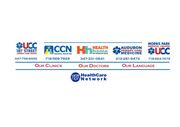What Should Parents Know About Asthma in Children?

Asthma is the most common issue in pediatrics, with one out of every 12 children in the U.S. experiencing varying degrees of the condition. For parents who are unfamiliar with asthma, the disease can raise many questions. If you think your child may have asthma or could be at risk of developing the condition, here’s what you should know about symptoms and treatment.
A Parent’s Guide to Asthma
What Is Asthma?
Asthma is an inflammatory condition the affects the airways in the lungs. Air passes freely through airways under normal circumstances, but in children with asthma, the lining of the airways swell and fill with mucus. This impedes airflow, triggering the characteristic coughing and wheezing frequent in asthma attacks.
How Can You Tell if Your Child Has Asthma?
Children with asthma may complain of a tight feeling in their chest, or wheeze when breathing. They may also become breathless, especially during exercise. Other common symptoms include chronic coughing, which may be most noticeable at night or when your child is laughing, along with fatigue.
Can Asthma Attacks Be Prevented?
 As a parent, understanding asthma triggers can help you lower the risk of your child having an attack. Smoke, strong odors, and other airborne irritants can elicit asthma symptoms, as can allergens such as pollen and animal dander. Keep children indoors when the pollen count is particularly high or explore allergy medications with their pediatrician to curb allergy-induced asthma.
As a parent, understanding asthma triggers can help you lower the risk of your child having an attack. Smoke, strong odors, and other airborne irritants can elicit asthma symptoms, as can allergens such as pollen and animal dander. Keep children indoors when the pollen count is particularly high or explore allergy medications with their pediatrician to curb allergy-induced asthma.
Variables that are harder to control, such as laughing or crying and respiratory illnesses, can also lead to asthma attacks. For this reason, parents may consider occupational therapy to help their children develop breathing exercises to control asthma symptoms. Additionally, pediatric professionals may be able to recommend daily medications to control asthma, along with rescue medications such as inhalers or nebulizers, which can be taken as needed.
If you’re a parent who needs trusted pediatric professionals to help their children through asthma and other conditions, turn to HDR Healthcare Network in the New York City area. This network of urgent care centers and medical clinics makes quality health care convenient for the entire family. Their locations span across Upper Manhattan and the West Bronx and offer comprehensive medical care including treatments for illnesses, physicals, and minor injury care. To find out more about their services, call (929) 256-5005.
About the Business
Have a question? Ask the experts!
Send your question

